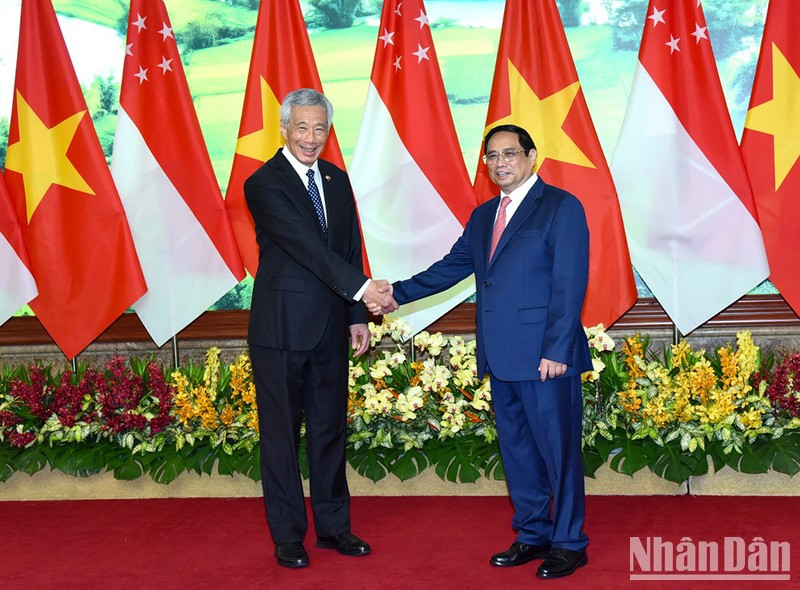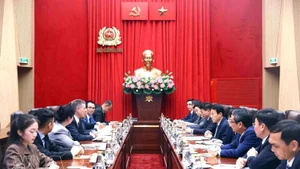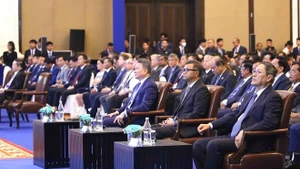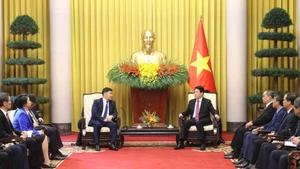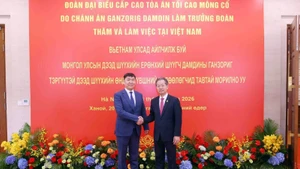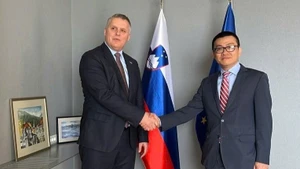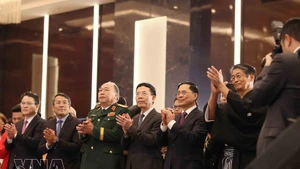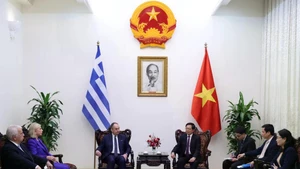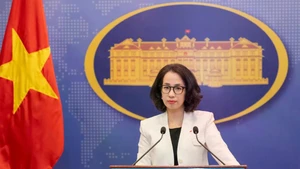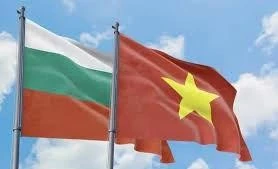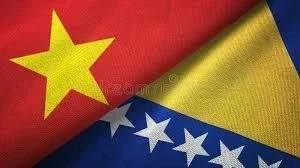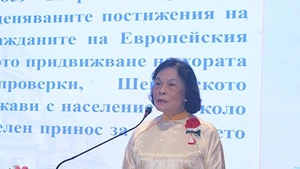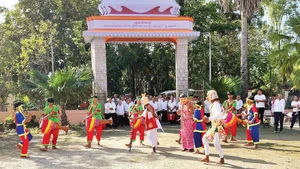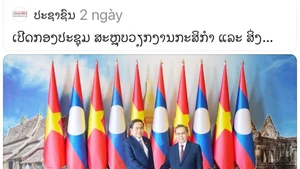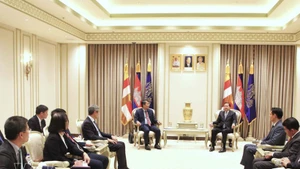Chinh stressed the importance of Lee’s visit in the context that the two countries are celebrating the 50th anniversary of their bilateral diplomatic ties (1973 - 2023) and the 10 years of their strategic partnership (2013-2023), saying it is expected to contribute to strengthening the relationship.
The trip also demonstrates the resolve by the two countries in cooperation to elevate the relationship to a new level and to make it more intensive, extensive, comprehensive, sustainable, and inclusive, for peace, stability, and development in the region, he said.
Congratulating Singapore on its economic recovery and development, the Vietnamese leader expressed his belief that it will soon achieve its Green Plan 2030, contributing to building a strong, united, and self-resilient ASEAN Community.
For his part, Lee commended Vietnam’s great achievements in socio-economic recovery and development after the COVID-19 pandemic, and noted with pleasure the development of the bilateral relations over the past time.
Vietnam is an important strategic partner of Singapore in the region, the PM affirmed.
Host and guest shared the view that the Vietnam-Singapore relationship is at its best ever, with various important cooperation agreements put in place. Notably, in the first eight months of this year, Singapore made up the largest share of foreign investments in Vietnam with total newly-registered capital exceeding 3.6 billion USD.
They consented to step up delegation exchanges at all levels and through the channels of Party, State, Government and legislature, and hold their annual meetings to compare notes on the bilateral ties and issues of shared concern.
The two countries will also effectively materialise high-level cooperation agreements and mechanisms, and coordinate in organising activities celebrating the above-said 50th and 10th anniversaries, including the “Spotlight Singapore in Vietnam” slated for October.
The leaders emphasised the need to fruitfully realise the partnership in digital economy–green economy established in February, and spoke highly of joint efforts in upgrading the framework agreement on connecting the two economies, contributing to deepening and expanding the economic cooperation to such new areas as clean energy, energy transition, and innovation.
Chinh suggested Singapore facilitate the export of Vietnamese goods into the market, as well as the development and the transformation of the Vietnam-Singapore Industrial Parks (VSIPs) to smart, green low-carbon industrial parks, towards the industrial-urban ecosystem.
He also called on Singapore to expand investments in Vietnam’s key, priority spheres like electronics, smart manufacturing, IT, digital technology and new materials, and help the country boost industries in support of such sectors as garment-textile, wood processing, shipbuilding, industrial infrastructure development, chemicals, petrochemicals, and liquefied natural gas, among others.
The two sides concurred to enhance cooperation in national defence and security through the signing and implementation of relevant cooperation agreements, along with dialogue mechanisms, and coordination in multilateral mechanisms and activities.
Both rejoiced at cooperation in digital transformation and national data centre building.
In this regard, Chinh suggested Singapore help Vietnam build and operate a large database centre to improve efficiency in the fight against crimes, especially high-tech ones, and soon connect Vietnam's system with the electronic identification and authentication system in Singapore in order to make it easier for their citizens in traveling, living, and working.
The two PMs agreed to promote cooperation in other key areas, including finance, banking, and tourism; and highly valued documents on cooperation in education-training signed on this occasion.
Chinh suggested expanding cultural collaboration, making it on par with the bilateral economic ties.
Regarding multilateral and regional cooperation, the two sides highly valued each other's regular coordination and mutual support in the election and running for election to the UN's offices and organisations. They also consented to continue their coordination with other ASEAN member countries in trade and investment promotion, and maintaining the grouping’s stance on the East Sea issue.
Both emphasised the significance of navigation and aviation freedom and safety, and the full and effective implementation of the Declaration on the Conduct of Parties in the East Sea/South China Sea (DOC), striving to build an effective and substantive Code of Conduct in the East Sea (COC) in line with international law, including the 1982 United Nations Convention on the Law of the Sea (1982 UNCLOS).
Following the talks, the leaders witnessed the signing of seven cooperation documents, including a study agreement for high-ranking officials of the Communist Party of Vietnam for the 2024-2026 period between the two foreign ministries, and others covering economy, innovation, labour, climate change response, education, and sustainable infrastructure development.
